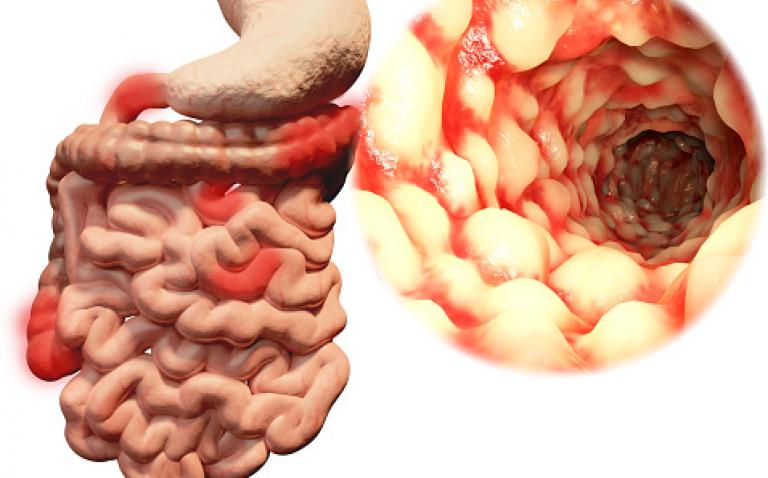Janssen has announced that the National Institute for Health and Care Excellence (NICE) has recommended Stelara® (ustekinumab) in its Final Appraisal Determination (FAD) as a treatment option for adult patients with moderately to severely active Crohn’s disease, who have had an inadequate response with, lost response to, or were intolerant to either conventional therapy or a TNF alpha inhibitor or have medical contraindications to such therapies.1
The NICE guidance issued states that ‘‘the choice of treatment between ustekinumab or another biological therapy should be made on an individual basis after discussion between the patient and their clinician about the advantages and disadvantages of the treatments available. If more than one treatment is suitable, the least expensive should be chosen (taking into account administration costs, dosage and price per dose)”.
Ustekinumab is the first human monoclonal antibody for Crohn’s disease to target the interleukin (IL)-12 and IL-23 cytokines, which play a key role in giving it a different mode of action from other licensed therapies.2,3
Dr Peter Irving, Consultant Gastroenterologist, Guy’s and St Thomas’ NHS Foundation Trust commented: “The decision to allow patients with moderate to severe Crohn’s disease to have access to treatment with ustekinumab will be welcomed both by patients and health care providers. The promising results seen in the clinical trials suggest that the possibility of treating patients with a new drug employing a novel mode of action will reap real benefits for patients with a disease that can have enormous impact on their lives.”
Crohn’s disease affects approximately 115,000 people in the UK and is associated with abnormalities of the immune system that could be triggered by a genetic predisposition or other environmental factors.4 Usually affecting people between the ages of 10 and 40, Crohn’s disease is slightly more common in women than men, and symptoms can range from mild to severe, the most common being abdominal pain, diarrhoea, fatigue, fever, mouth ulcers, loss of appetite, weight loss and anaemia.4 There is currently a significant unmet medical need in Crohn’s disease, with slightly more than half of patients maintaining relief from their symptoms (remission) for more than one year with either currently available therapies, or no treatment.5
Sarah Berry, Health Policy & Public Affairs Officer from Crohn’s and Colitis UK said: “We are delighted that NICE has recommended ustekinumab as a treatment option for adults with Crohn’s disease. The impact of uncontrolled symptoms of Crohn’s disease can be profoundly debilitating and current treatment options simply do not work for everyone. This ruling gives access to a desperately needed additional treatment option to those who may otherwise have been condemned to living with unmanageable disease progression with devastating impact on their quality of life.”
The FAD follows new data that was announced at the 12th Congress of the European Crohn’s and Colitis Organisation (ECCO) in February 2017, showing that treatment with ustekinumab maintains clinical response and remission in some patients for up to two years with no new safety signals observed.6
“We are delighted with today’s recommendation from NICE. We know that people living with Crohn’s disease are in real need of additional treatment choices where other traditional treatments have failed. Therapies with a unique mode of action can be life-transforming for people living with this debilitating condition who have had problems with other treatments or are facing surgery. The clear guidance set out by NICE means that physicians can make informed decisions with their patients,” commented Jennifer Lee, Director of Health Economics, Market Access and Reimbursement (HEMAR) and Advocacy at Janssen UK.
References
- National Institute for Health and Care Excellence. Ustekinumab for moderately to severely active Crohn’s disease after previous treatment. Final appraisal determination. www.nice.org.uk/guidance/gid-ta10098/documents/final-appraisal-determination-document Accessed April 2017
- Summary of Product Characteristics Stelara 45 mg and 90 mg solution for injection and solution for infection in pre filled syringe
- Summary of Product Characteristics Stelara 130 mg concentrate solution for infusion
- Crohn’s & Colitis UK: What is Crohn’s Disease? www.crohnsandcolitis.org.uk/about-inflammatory-bowel-disease/crohns-disease Accessed April 2017
- Travis S et al.European evidence based consensus on the diagnosis and management of Crohn’s disease: current management. Gut 2006. 55(1) i16–i35
- Sandborn W et al. Long term efficacy and safety of ustekinumab for Crohn’s disease: Results from IM-UNITI Long-Term Extension through 2 years. Annual Congress of the European Crohn’s and Colitis Organisation (ECCO 2017); 15-18 February, 2017; Barcelona, Spain; Abstract A-1285










